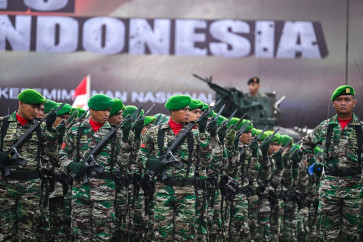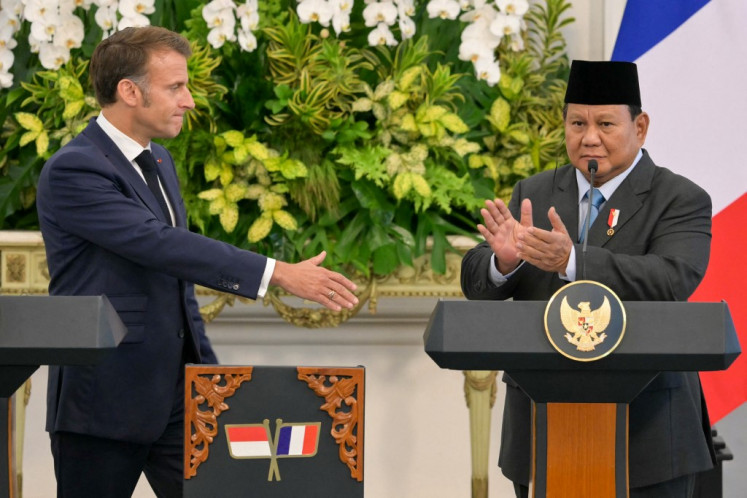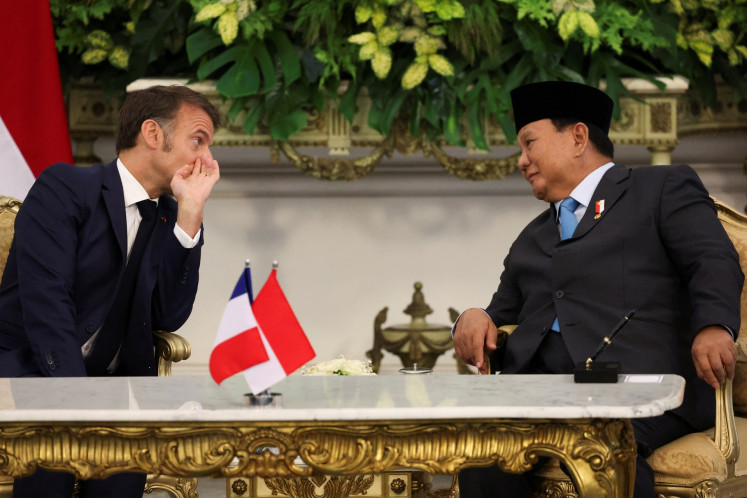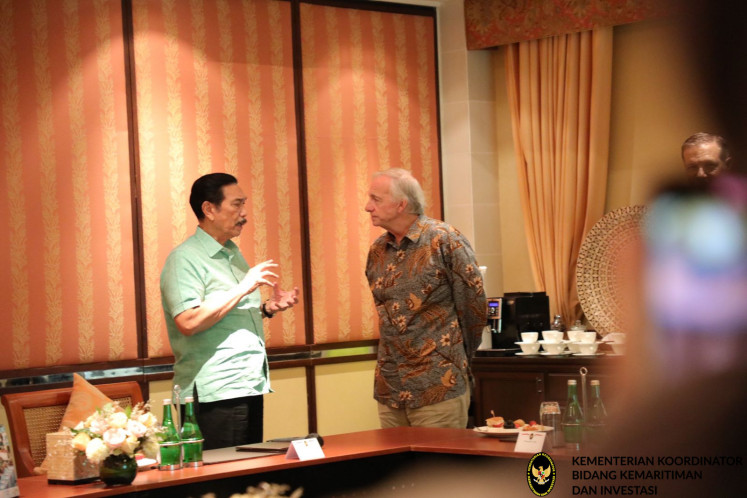Anti-Ahok campaign a threat to diversity?
Although Jakarta Governor Basuki “Ahok” Tjahaja Purnama has apologized for a statement in which he cites the Quran’s Surah al-Maidah 51, conservative Islamic groups apparently consider the case unresolved
Change text size
Gift Premium Articles
to Anyone

Although Jakarta Governor Basuki “Ahok” Tjahaja Purnama has apologized for a statement in which he cites the Quran’s Surah al-Maidah 51, conservative Islamic groups apparently consider the case unresolved.
After a big demonstration a few weeks ago, hard-liners will take to the streets for a bigger rally on Friday to demand legal action against him for his alleged blasphemous statement.
On social media, Ahok has been called a despotic non-Islam leader. Jakartans are not the only ones divided over the movement to “punish” Ahok.
Those living outside of the capital city are also trapped in this narrow polarization. This development is alarming and threatens our democracy.
The outrage targeting Ahok needs to be analyzed in a larger framework because the rising anger and hatred against Ahok is not just simply driven by allegations of religious defamation.
The fury is an accumulation of larger problems concerning the politics of identity, unbalanced majority-minority relations and lack of commitment of certain groups (hard-liners) to diversity as mandated in the Constitution and Pancasila, the state ideology.
Ahok is actually the target of hatred theology based on religion that resists diversity in Indonesia. If we examine this case with an open and critical mind, Ahok did not intend to attack the content of Surah al-Maidah 51, let alone desecrate the sanctity of the Quran.
He simply criticized the mobilization of people by hard-liners that had used that verse to justify their rejection of a non-Muslim leader.
The movement certainly goes against the Constitution, which stipulates that Indonesia is neither an Islamic state nor a secular state and guarantees minorities the right to express themselves in politics.
_____________________________
National unity requires tolerance and respect for diversity and mutual cooperation.
The indignation against Ahok’s statement first of all stems from the fact that within Ahok is flowing two minority identities: Christian and Chinese-Indonesian.
If Christian identity drags on the theological belief among certain Muslims who consider other believers as infidels, Chinese identity drags on bad cultural prejudice, which perceives this ethnicity as a traitor who wants to control the Indonesian economy.
We should admit that this black and white and narrow view inhabits the mindsets of a handful of Indonesians when they look at Christian and Chinese descent communities.
Those narrow-minded people seem to not understand Indonesian history or turn a blind eye to the discriminatory treatment experienced by the ethnic Chinese in Indonesia in the past.
During the Dutch colonial era, Chinese-Indonesians endured discrimination due to the enactment of the passenstelsel system (pay taxes for traveling) and wijkenstelsel system (live on a “special settlement”).
When Indonesia gained independence, the discrimination did not end. During the parliamentary democracy era, the Indonesian government adopted the Benteng (fort) program that restricted access for Chinese-Indonesians to business.
In the New Order, the involvement of Chinese-Indonesians in the government and military was limited.
And to this day, we should acknowledge that the legacy of the discriminatory perspective still inhabits most mindsets of our society when perceiving ethnic Chinese.
The groups angry about Ahok’s statement are actually the same Islamic groups that cannot accept a minority to rule the majority.
They believe that Ahok as a minority does not represent the majority of Jakartans.
The unbalanced majority-minority relation is the classic problem of a democracy.
Democracy should be able to guarantee the freedom of expression of marginalized minorities.
The challenge to our democracy is how to realize the political recognition that ensures equal rights for various groups so they can coexist peacefully and productively in the republic.
If the state fails to manage majority-minority relations, conflicts that trigger riots and violence will arise. As a comparison, in India, the unmanaged Hindu majority-Islam minority relations by the state often led to bloody conflicts.
While in Fiji, we learned that when an Indian-Fijian minority won the 1987 and 1999 elections by defeating the majority iTaukei indigenous Fijians, the latter pushed for a coup.
As a nation that has a long history of violence, we must recognize we too are vulnerable to such conflicts.
To maintain harmony between the majority and minority commitment to diversity as a historical and social reality is a must.
The political awareness of diversity as historical and social reality encouraged our founding fathers to keep unity in diversity as the foundation of our state.
National unity requires tolerance and respect for diversity and mutual cooperation to build the country without debating the boundaries of identity.
When we look at diversity as a threat then there may be something wrong with our understanding of raison d’etre of Indonesia.
___________________________________
The writer, who obtained a Master’s degree from Leiden University, is a researcher at the history department, Gadjah Mada University, Yogyakarta.









